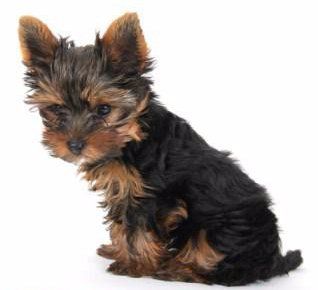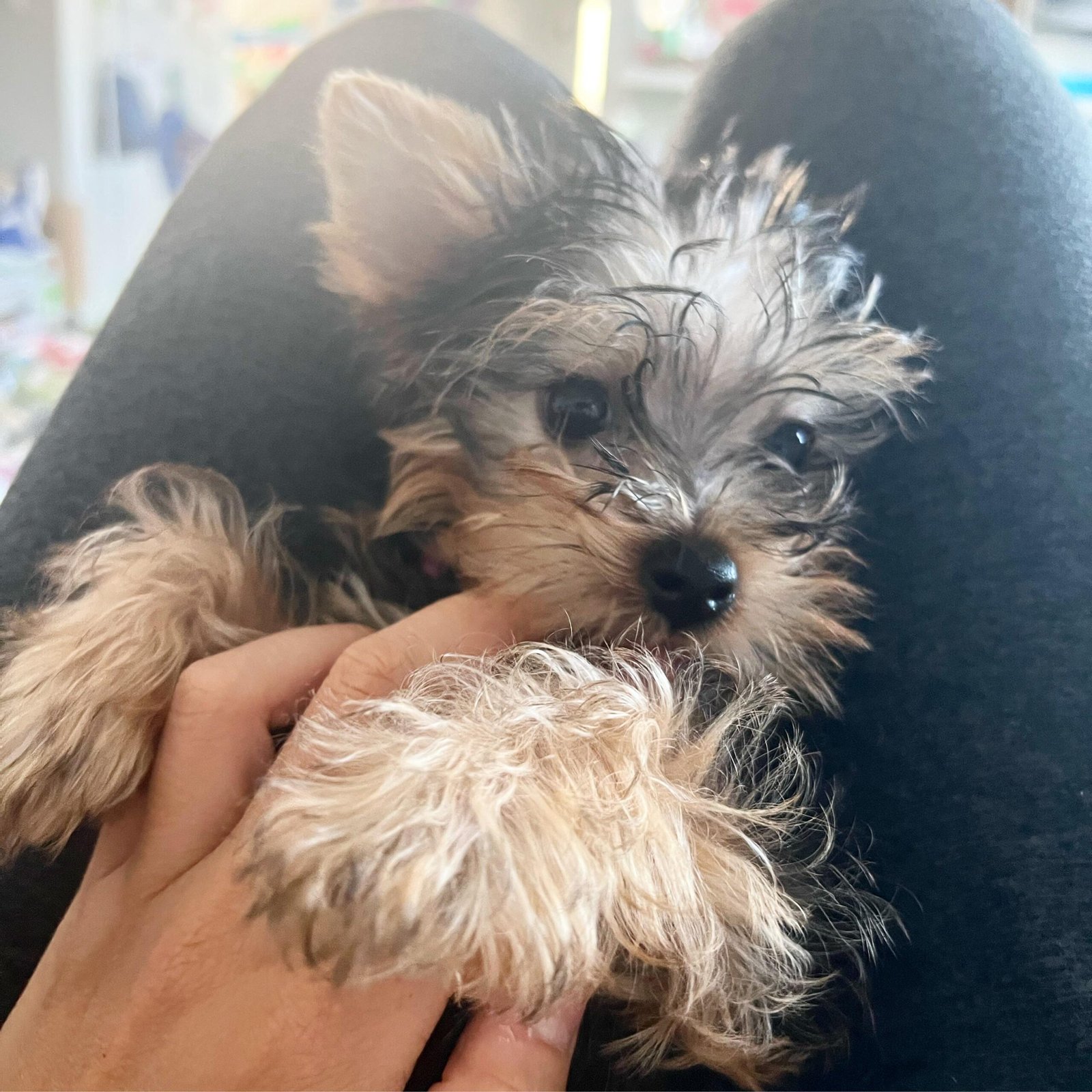Have you ever wondered why your Yorkie doesn’t quite look like a typical Yorkie? Don’t worry, you’re not alone! It can be puzzling when our furry friends don’t fit the mold we expect. But fear not, because we’re here to delve into the fascinating world of Yorkie appearances and uncover the reasons behind those unique differences.
When we think of a Yorkie, we often imagine a small, adorable pup with a luxurious coat of flowing hair. But what if your Yorkie seems to have a different coat texture or color? Well, my curious friend, there are a variety of factors that can contribute to these unexpected variations. From genetics and breeding to age and health, every Yorkie is truly one-of-a-kind, just like you!
So, grab your detective hat and join us on this exploration to uncover why your Yorkie may not look like your typical Yorkie. Get ready for some exciting discoveries that will deepen your understanding and appreciation for the marvelous diversity of our canine companions. Let’s embark on this journey and uncover the secrets behind your unique Yorkie’s appearance!
Have you noticed that your Yorkie doesn’t quite look like a typical Yorkie? There are a few reasons why this might be the case. One possibility is that your Yorkie may have mixed parentage, resulting in different physical traits. Another reason could be variations within the breed itself, as Yorkies can have different coat textures and colors. Lastly, it’s important to remember that individual genetics play a role in determining the appearance of a dog. So, while your Yorkie may not fit the mold perfectly, they are still unique and lovable in their own special way!

Why Does My Yorkie Not Look Like a Yorkie?
Introduction: Yorkies are known for their distinct appearance, with their beautiful coats and small stature. However, if your Yorkie doesn’t quite match the typical breed standard, you may be wondering why. In this article, we will explore the various factors that can contribute to variations in a Yorkie’s appearance and why your Yorkie may not look like a typical Yorkie.
Genetics and Their Impact on Yorkie Appearance
Understanding the role of genetics is key to unraveling why your Yorkie does not look like a typical Yorkie. The appearance of a dog is determined by a combination of genes from their parents, and sometimes these genes can result in unexpected variations. While breed standards provide general guidelines for appearance, individual genetic variation can lead to differences among Yorkies.
In some cases, your Yorkie may exhibit traits that are not typical of the breed due to recessive genes being passed down from previous generations. These genes may not have been expressed in the immediate lineage but can still manifest in later generations. Additionally, if your Yorkie’s parents or ancestors had mixed breeding, it can introduce genetic variations that deviate from the breed standard.
Furthermore, it is important to remember that each Yorkie is unique, and even within a purebred litter, there can be variations in appearance. This variation is part of what makes each dog special and should be celebrated. Remember, true beauty lies in the individuality of each dog, rather than conforming to a specific mold.
Diet and Nutrition: Influencing Appearance
The role of diet and nutrition should not be underestimated when considering the appearance of your Yorkie. Proper nutrition plays a vital role in the overall health and well-being of a dog, including their coat, muscle tone, and overall appearance.
If your Yorkie is not receiving a balanced diet or lacks essential nutrients, it can impact their appearance. A poor diet lacking in proper nutrients can lead to dull fur, thinning coat, and even skin issues. On the other hand, providing a well-balanced diet that meets their nutritional needs can promote a healthy coat, vibrant coloring, and overall better physical appearance.
Consulting with a veterinarian and working together to develop an appropriate diet plan for your Yorkie is the best way to ensure they receive the necessary nutrients to maintain optimal health and appearance.
Grooming Practices and Their Effect on Appearance
Grooming is an integral part of maintaining the appearance of any dog, including Yorkies. Regular grooming practices can greatly influence their overall appearance and ensure that they look their best.
When it comes to grooming a Yorkie, their luxurious coat requires special attention. Regular brushing helps prevent matting and keeps their fur looking smooth and shiny. Additionally, trimming their hair, particularly around the face and paws, can give them a more traditional Yorkie look. However, it is important to strike a balance and not go overboard with grooming, as excessive trimming can also alter their appearance and deviate from the breed standard.
Beyond brushing and trimming, other grooming practices such as regular baths, checking their ears for cleanliness, and maintaining their dental health also contribute to their overall appearance. Proper grooming not only keeps your Yorkie looking their best but also promotes their physical well-being.
Other Factors Affecting a Yorkie’s Appearance
While genetics, diet, and grooming practices are the primary factors that can impact a Yorkie’s appearance, there are other elements to consider as well. These factors may not be directly related to the breed but can still contribute to why your Yorkie doesn’t look like a typical Yorkie.
Tips for Embracing Your Unique Yorkie
Conclusion: Every Yorkie is special, regardless of whether they adhere to the breed standard or not. Embracing your unique Yorkie and focusing on their individuality is what truly matters. Remember to provide them with proper nutrition, maintain regular grooming practices, and most importantly, shower them with love and affection. A healthy and happy Yorkie will always shine, no matter what they look like.
Why Does My Yorkie Not Look Like a Yorkie?
- Your Yorkie may not look like a typical Yorkie due to a combination of genetic factors.
- Different breed standards and variations within the breed can also affect the appearance of Yorkies.
- Diet and nutrition can play a role in a Yorkie’s overall appearance and coat quality.
- Health issues, such as allergies or hormonal imbalances, can impact a Yorkie’s physical appearance.
- Grooming practices, including the type of haircut and styling, can influence how a Yorkie looks.
Frequently Asked Questions
In this section, we will address some common concerns regarding Yorkies that may not look like typical Yorkies.
1. Why does my Yorkie have a different coat color than other Yorkies?
Coat color in dogs, including Yorkies, is determined by genetic factors. It is possible for a Yorkie to have a different coat color due to inheriting certain genes from their parents. While the traditional coat color for Yorkies is black and tan, variations such as parti-color (white and tan), chocolate, or even blonde can occur. These color variations are still considered to be within the breed standard, and your Yorkie is just as special and unique as any other.
It is important to note that reputable breeders focus on maintaining the breed standard, but sometimes variations can occur due to genetic diversity or specific breeding programs aimed at producing different coat colors. Regardless of their coat color, your Yorkie is still a Yorkie at heart.
2. What can cause my Yorkie to have a different body size compared to typical Yorkies?
Body size in Yorkies can vary due to a combination of genetic and environmental factors. While there is a breed standard for Yorkies that specifies their ideal size, individual variation is common. Factors such as genetics, nutrition, exercise, and overall health can influence your Yorkie’s body size. It is also important to remember that not all Yorkies will fit within the exact parameters of the breed standard, and slight variations in size are normal and acceptable.
If you have concerns about your Yorkie’s size, it is best to consult with a veterinarian who can assess their overall health and provide guidance based on their specific needs. Remember, what matters most is that your Yorkie is happy, healthy, and loved, regardless of their size.
3. Why does my Yorkie have floppy ears instead of the erect ears often associated with the breed?
While erect ears are a prominent characteristic of Yorkies, it is not uncommon for some individuals to have floppy ears. The shape and positioning of a dog’s ears are determined by genetics. Some Yorkies may inherit genes that result in floppy or semi-erect ears rather than fully erect ones. This variation in ear appearance does not make your Yorkie any less of a Yorkie or affect their health in any way.
It is always a good idea to monitor your Yorkie’s ears for any signs of infection or discomfort regardless of their shape. If you have any concerns, it’s best to consult with a veterinarian who can provide guidance and address any specific issues regarding your Yorkie’s ears.
4. Why does my Yorkie have a straight tail instead of a curled tail?
Yorkies are known for their trademark curled tails, but not all Yorkies have this exact tail shape. The curl in a Yorkie’s tail is due to various factors, including genetics. Some Yorkies may have straight or slightly curved tails instead of the tightly curled ones typically associated with the breed. These variations in tail shape do not affect your Yorkie’s breed identity or overall health.
If you have concerns about your Yorkie’s tail shape or notice any signs of discomfort or mobility issues, it is advisable to consult with a veterinarian. They can provide guidance and ensure that your Yorkie is happy and healthy, regardless of their tail shape.
5. Why does my Yorkie have a different facial structure compared to other Yorkies?
Individual Yorkies can have slight variations in their facial structure, just like humans can have different facial features. These variations can be influenced by genetics, breeding practices, or specific lines within the breed. While there is a breed standard for Yorkie facial structure, slight differences in features such as muzzle length, eye shape, or ear set can occur.
It is important to remember that these variations do not affect your Yorkie’s breed identity or overall health. Each Yorkie is unique and beautiful in their own way. If you have any concerns about your Yorkie’s facial structure, it is always best to consult with a veterinarian who can provide guidance and address any specific questions you may have.

Summary
Your Yorkie might not look like a typical Yorkie due to various reasons. Genetics play a significant role in determining their appearance. It’s possible that your Yorkie has inherited different physical traits from its parents or ancestors. Another reason could be that your Yorkie is a mixed breed with other dog breeds, which can affect their appearance. It’s important to remember that appearance doesn’t define your dog’s worth or the love you have for them. Embrace your unique-looking Yorkie and cherish their individuality.
It’s not just looks that make a dog special, but their personality and the love they bring. Whether your Yorkie looks like a Yorkie or not, what matters most is the bond you share and the joy they bring to your life. So, embrace your unique Yorkie and give them all the love and care they deserve.
